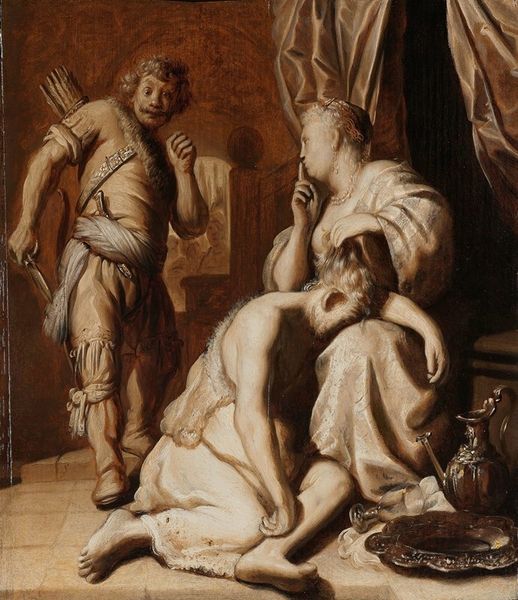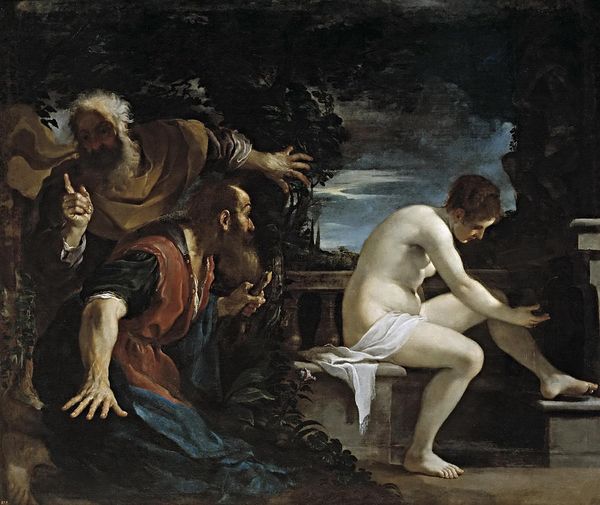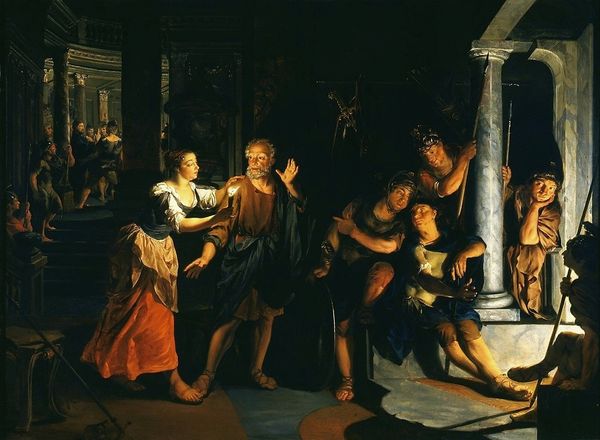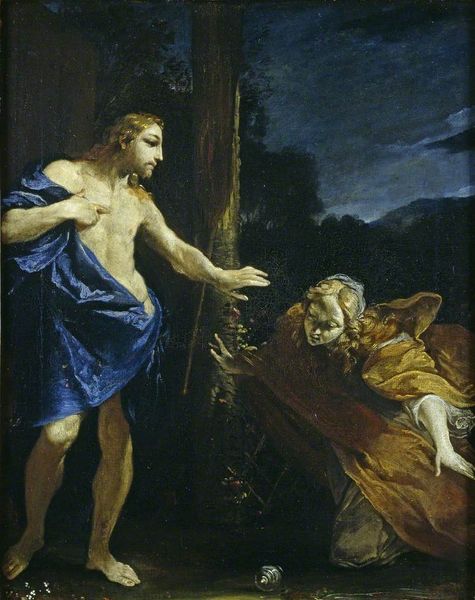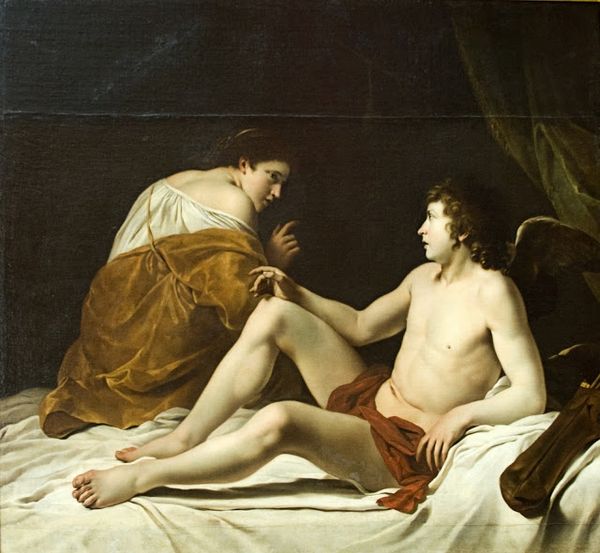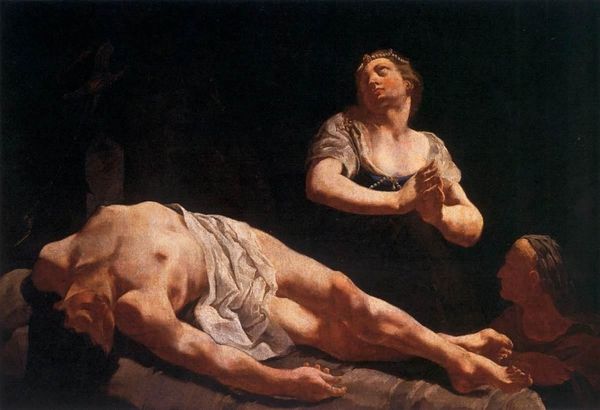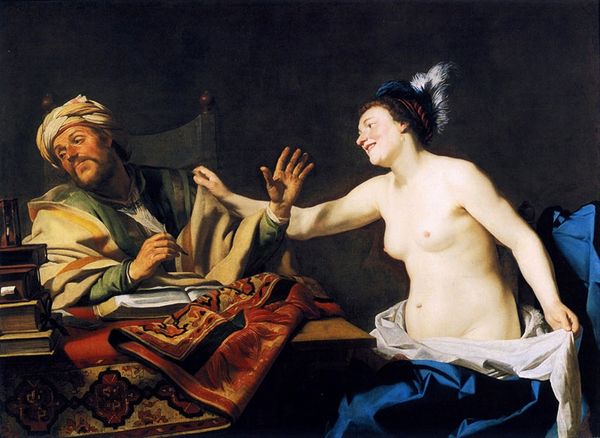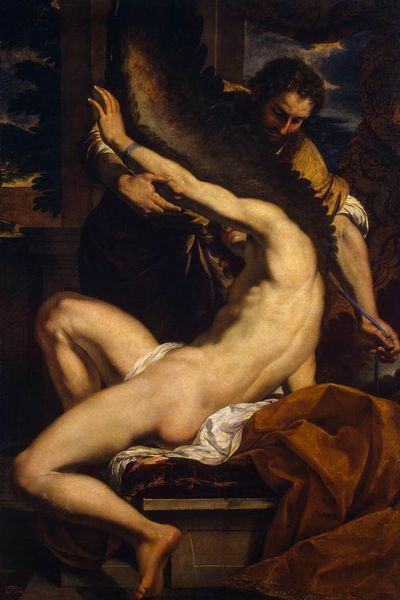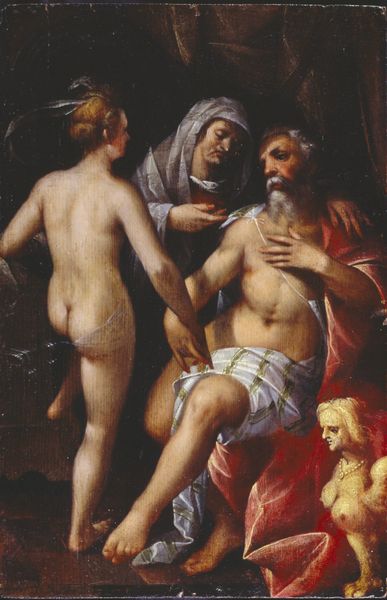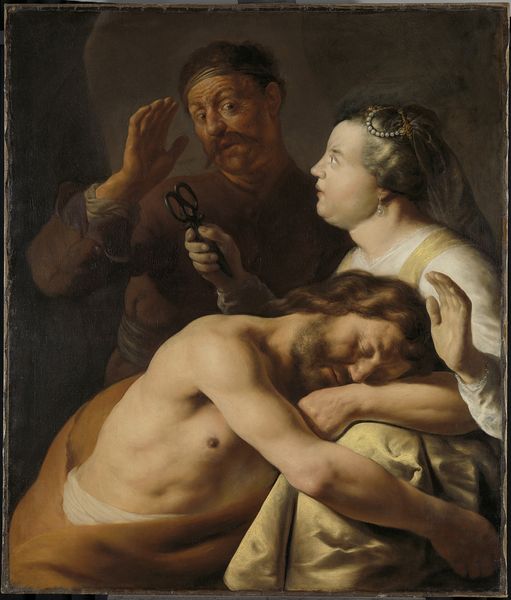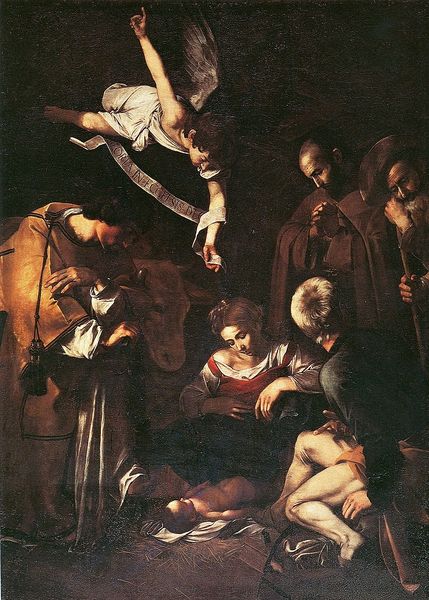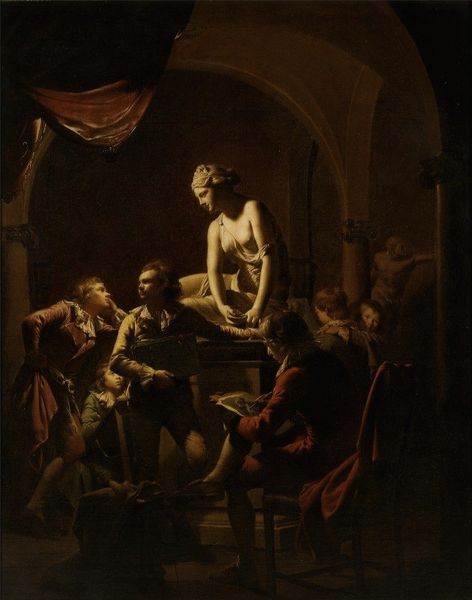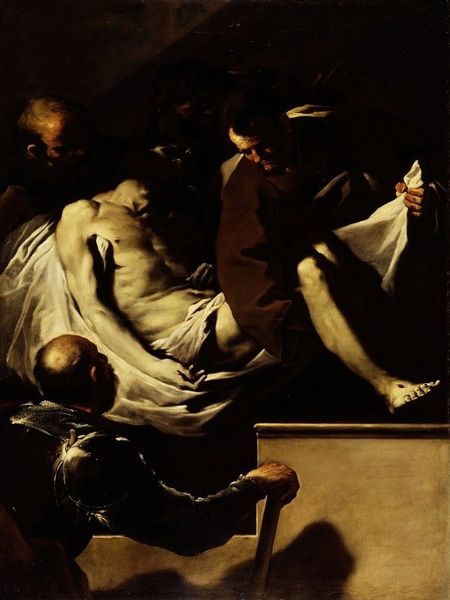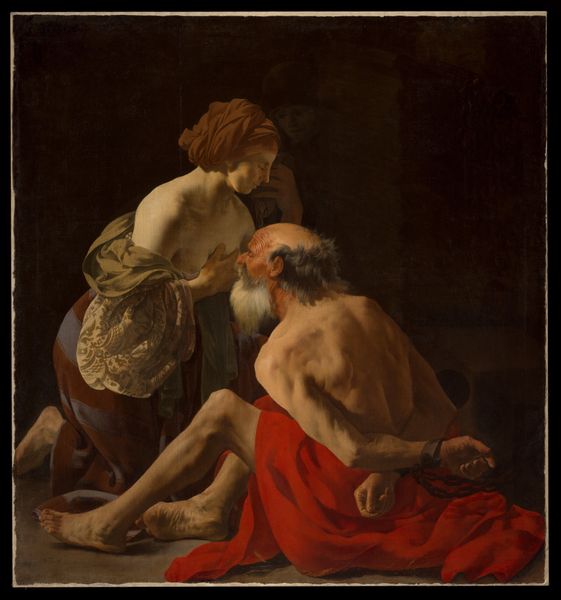
painting, oil-paint
#
portrait
#
baroque
#
painting
#
oil-paint
#
figuration
#
oil painting
#
history-painting
Copyright: Public domain
Editor: This is “Boethius and Philosophy” by Mattia Preti. It’s an oil painting, and I find it quite somber. The stark contrast between the figures is quite striking, but what's your take? How do you interpret this work? Curator: Indeed. Look at the figures: we have the haggard Boethius, clearly in distress, contrasted against the allegorical figure of Philosophy. It is about more than one man's grief though. We must place this within the context of Boethius's imprisonment and execution. Considering this, how does the painting speak to power structures and justice? What do you see in Philosophy’s seemingly passive offering? Editor: Well, she looks quite regal in comparison. Almost untouched by his despair, with an aloof indifference to his plight. Perhaps it represents how philosophy can appear detached from real-world suffering. Curator: Precisely. But also consider the historical period. In Preti's time, during periods of upheaval and religious persecution, where did intellectual resistance often originate? Boethius represents not just personal tragedy, but the persecution of knowledge. The woman signifies a certain detachment, yet she is pointing. She almost beckons a closer look. How does Preti implicate *us*, the viewers, in this dynamic? Editor: That makes a lot of sense. The contrast isn’t just aesthetic; it’s a power dynamic, showing Philosophy perhaps as offering guidance, but also detached from the realities of political injustice and societal constraints. I appreciate seeing how historical events shaped both the artwork and the artist’s point of view. Curator: Absolutely. And, by examining the artist's interpretation and the society it reflects, we move beyond merely admiring a painting, to questioning and learning from its social and political resonance. Hopefully, it compels us to question similar patterns in the present day.
Comments
No comments
Be the first to comment and join the conversation on the ultimate creative platform.
